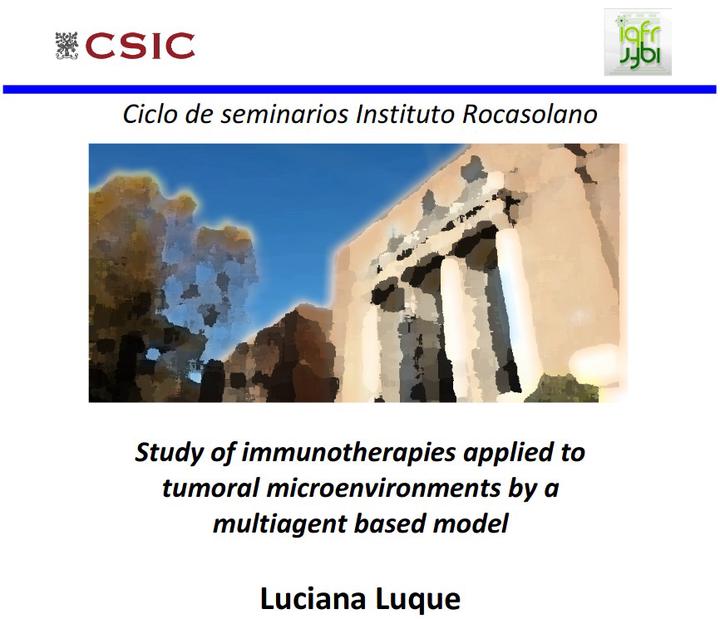Study of immunotherapies applied to tumoral microenvironments by a multiagent based model.
 IQFR announcement
IQFR announcement
Abstract
Immunotherapies have been on the rise in the last few years due to their great efficacy in the battle against certain types of cancer. Such efficacy not only lies in the high rates of tumor remission but also in the reduction of side effects compared to other therapies that damage healthy tissue as well. Due to the complex immune response mechanisms and immune evasion exhibited by certain cells, studying these systems is a challenging task. In addition, the different time scales used by some immune system processes make their study very difficult to achieve in an experimental setting. For all this, computational modeling studies have shown to be a powerful tool to complement experimental measurements. Particularly, the multiagent based model is a kind of computational model implemented mainly to simulate the actions, behaviors and interactions of autonomous individual or collective entities, with the aim of exploring the impact of an agent or a type of behavior in the system. The set of “simple rules” followed by the agents allows to determine emergent laws that come out of the collective phenomenon, which cannot be deduced in terms of those simple rules. In consequence, the main feature of this type of modeling is that it provides predictive power on a large scale, i.e. it allows to simulate clinical trials with detail enough to study the response to multiple factors, making it possible to test and predict therapy failures in simulations rather than in patients. This could not only result in better drug design and lower development costs, but in reduced risks and side effects, which are still significant today. We are developing a multiagent based model to study not only tumor growth and its interaction with immunotherapies. In this talk we will present some preliminary results that illustrate how computational modelling can provide a quantitative picture of cancer growth in a variety of environments and how it can be constrained by therapeutic agents.
28006 Madrid